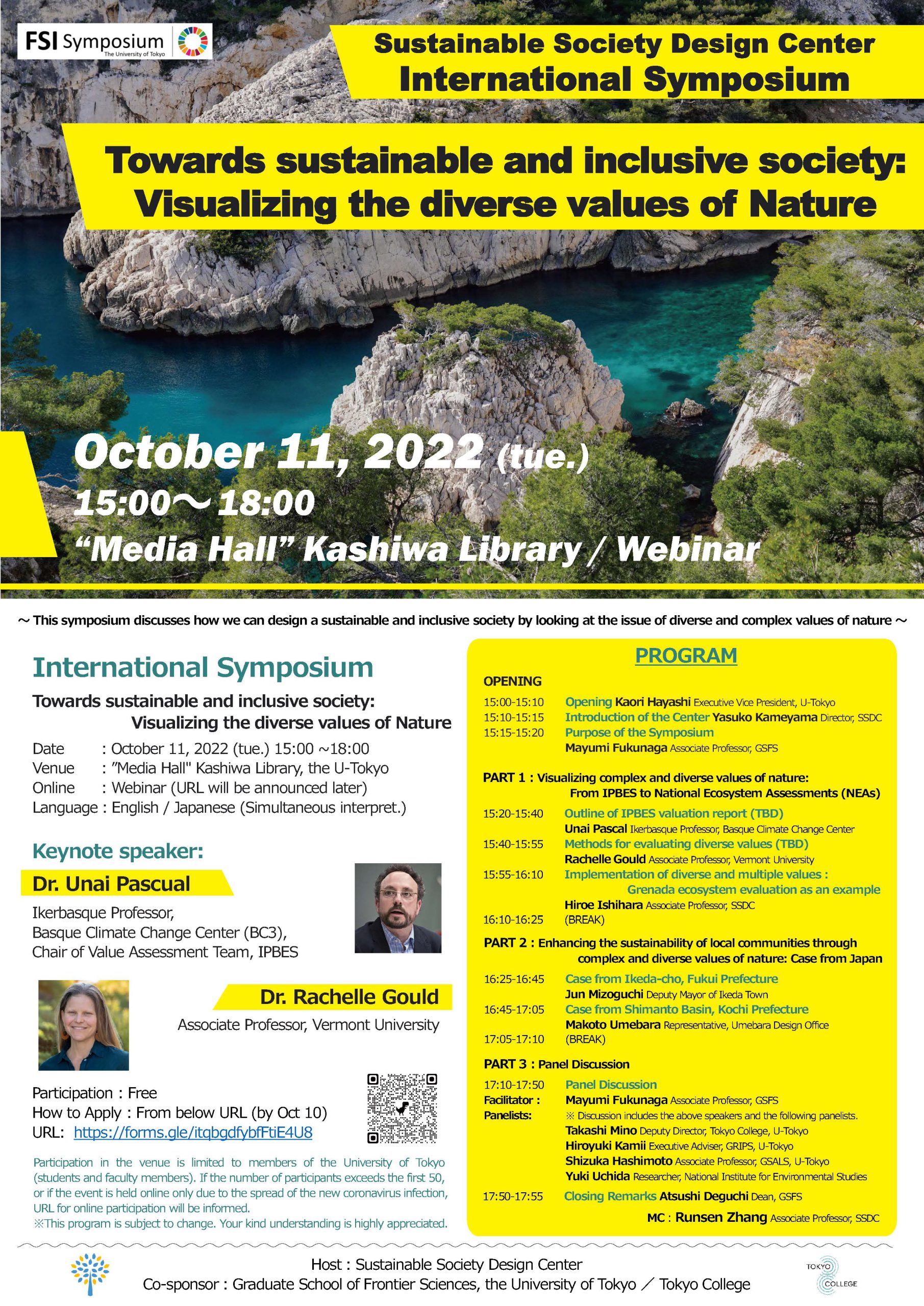First international symposium (Sustainable Society Design Center) “Towards sustainable and inclusive society: Visualizing diverse values of Nature”

| Date(s) | Tuesday, 11th October 2022, 3:00-6:00 pm |
|---|---|
| Venue |
Media hall, Kashiwa Campus and online An advance registration is required. |
| Language | Japanese English (Simultaneous translation available) |
| Abstract |
Our society is heavily dependent on various contributions from nature (such as food, timber, etc.) which are traded in markets. However, the value of nature is not limited to these monetary values. There are multiple and complex values to nature. For example, water purification provided by wetlands is not something that is traded on the market. But our society reaps the benefit, i.e. the good quality water. Furthermore, we cannot put dollar signs to all the values provided by nature. People, at times, refuse to put a monetary value on the forests that are deemed to be sacred. They consider it is not ‘right’ to trade something sacred on the market. In order to emphasize these diverse and complex values of nature, IPBES, the Intergovernmental Science-Policy Platform on Biodiversity and Ecosystem Services, has produced the Values Assessment Report in 2022. At the same time, in Japan, there are communities where local stakeholders use these diverse and complex values of nature to attract stakeholders and achieve local sustainability. These measures are especially important as many rural communities are ageing, and their populations are decreasing. In this symposium, researchers involved in the preparation of the IPBES value assessment report and the Japanese stakeholders who are involved in the regional revitalization are invited. It will discuss how we can build a sustainable and inclusive society by finding the junction between the scientific evaluation of diverse and complex values in the international arena and the practice of regional revitalization in Japanese regions. |
| Program |
Opening Remarks Introduction of SSDC Aim of this symposium Part 1: Visualizing complex and diverse values of nature: From IPBES to National Ecosystem Assessments (NEAs) Keynote Speech Presentation 1 Presentation 2 Part 2: Enhancing the sustainability of local communities through complex and diverse values of nature: Case from Japan Presentation 1 Presentation 2 Part 3: Discussion Facilitator: MINO Takashi (Deputy Director, Tokyo College, U-Tokyo) Closing Remarks Moderator: ZHANG Runsen (Associate Professor, SSDC) *Please note that the above program is tempraly scheduled. |
| Organized by | Sustainable Society Design Center (SSDC)/ Graduate School of Frontier Sciences (GSFS), The University of Tokyo (U-Tokyo) / Tokyo College |
| Contact | spo@edu.k.u-tokyo.ac.jp |














